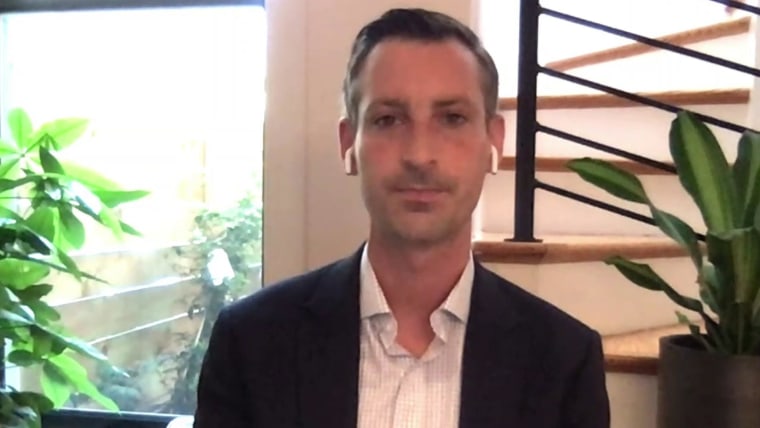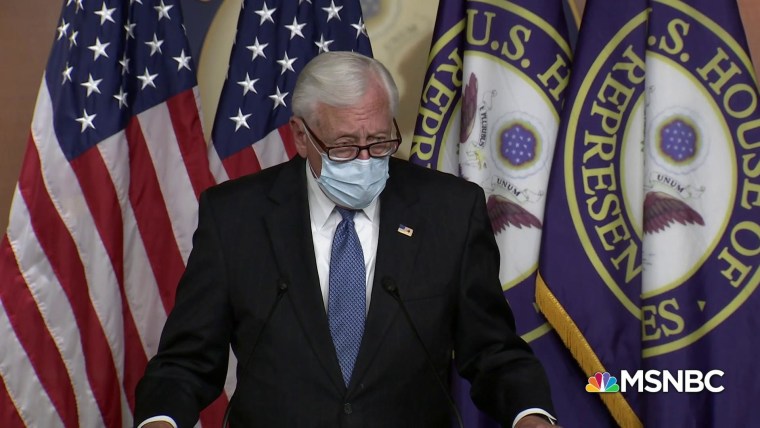WASHINGTON — U.S. intelligence reports suggesting Russia offered bounty payments to the Taliban to kill American troops have sparked outrage in Washington and questions about how the White House handled the information. But former U.S. officials say that whether or not bounties were paid, Moscow has been a thorn in America’s side for years in Afghanistan — and elsewhere in the world, working to sabotage and embarrass the U.S. at every opportunity.
The U.S. military has complained openly about active Russian support for the Taliban, with commanders accusing Moscow of providing weapons and political backing to the insurgents.
“We’re going to have to confront Russia,” then-Defense Secretary James Mattis said in 2017, referring to Moscow’s record in Afghanistan.
Gen. John Nicholson, the top U.S. commander in Afghanistan from 2016 to 2018, accused Russia of “arming belligerents” in 2017 and in 2018 said, “Clearly, they are acting to undermine our interests.”
Although Russia has professed support for planned peace negotiations brokered by the Trump administration, Moscow also cultivated ties and provided aid to the Afghan Taliban, according to former U.S. officials.
Douglas London, a former CIA official who worked on Afghanistan matters before he retired in late 2018, said U.S. officials closely tracked Russian support to the Taliban. While unable to comment on classified intelligence, London told NBC News the idea that the Russians were paying the Taliban to “incentivize” American deaths is “not inconsistent with our understanding of Moscow’s efforts to be a disruptive force and inflict harm on our people and interests.”
Whether the intelligence reports prove accurate, “there should be no illusion that Russia is a ‘partner for peace’ in Afghanistan,'” said James Cunningham of the Atlantic Council think tank, a former U.S. ambassador to Kabul.
For Moscow, a planned U.S. troop withdrawal and years of stalemate in Afghanistan are seen as a strategic gain, according to Cunningham, who served as ambassador from 2012 to 2014.
Russian President Vladimir Putin “hopes to see the United States discredited and dispirited as it withdraws, further undermining the United States, NATO, and the West,” Cunningham wrote.
Russia’s stance changes
Nearly 20 years ago, when the U.S. launched military action against the Taliban regime after the Sept. 11, 2001 attacks for offering refuge to Osama bin Laden and al Qaeda, Russia played a supportive role — backing Washington’s “war on terrorism.”
The U.S. quickly toppled the Taliban and Russia backed the new Afghan government led by President Hamid Karzai. Over time, however, Russia became wary of America’s open-ended military presence, fearing permanent U.S. bases in what considers its backyard, former officials said.
As relations deteriorated between Moscow and Washington over Ukraine, Syria and other issues, Russia chose to re-enter the arena in Afghanistan, in keeping with its self-image as a global power.
Russia reopened a cultural center in Kabul in 2014, and provided Kalashnikov rifles and ammunition to the Afghan government. Moscow took advantage of its contacts in Kabul, which include officials who were educated or trained in the Soviet Union, renewed its long-established ties with ethnic power brokers in the north, and quietly courted the Taliban.
“Russia did not seem confident that Afghanistan would be stable after the Americans eventually withdrew, and therefore the Russians would need a variety of Afghan partners,” said Johnny Walsh of the U.S. Institute for Peace, a former U.S. diplomat who worked in Afghanistan.
The Russians worry about Islamist extremism spreading from Afghanistan to Russia’s southern flank, and they see the Taliban as useful for taking the fight to ISIS, Walsh said.
But the Russians have appeared to calibrate their recent support for the Taliban, stopping short of a full-blown alliance, he said.
“I would say it often appeared that Russia was not willing to go as far as the Taliban wanted them to in terms of lethal assistance,” Walsh said.
For Russia, “it’s not even a marriage of convenience with the Taliban, it’s a liaison of convenience,” said Carter Malkasian, who served as an adviser to the former chairman of the Joint Chiefs of Staff, Gen. Joseph Dunford, and as a State Department political officer in Afghanistan.
Just because the Russians have friendly ties with the Taliban, and share an interest in seeing the Americans leave, “that doesn’t mean Russia wants to see the Taliban take over the government,” said Malkasian.
For the Taliban, ties with Russia offered a way to gain a degree of legitimacy on the world stage, according to Malkasian.
Russia has defended its outreach to the Taliban, saying it was aimed at persuading the insurgents to enter into peace talks.
“We maintain these contacts primarily for the sake of the security of Russian nationals in Afghanistan, Russian agencies there, and also to convince the Taliban to renounce armed conflict and join the national dialogue with the government,” Russian Foreign Minister Sergey Lavrov said in 2018.
Russia denies it has armed the Taliban, and vehemently rejected U.S. intelligence reports about a bounty operation targeting American troops in Afghanistan.
Russian President Vladimir Putin’s spokesman, Dmitry Peskov, told NBC News the reports of such a program were “ridiculous.”
“It’s a little bit rude, but this is 100 percent bulls—,” Peskov said. “It’s as simple as that.”
The Taliban also has denied it agreed to a bounty operation backed by Russia.
‘I don’t think it’s been decisive’
The precise scale and scope of Russia’s support for the Taliban has been subject to debate in recent years. But even taking into account the latest intelligence reports about a possible bounty program, Moscow does not appear to have had a major impact on the battlefield, several former officials and two foreign diplomats told NBC News.
“I don’t think it’s been decisive in the military equation,” one former senior U.S. official said.
The Taliban, which steadily gained ground against Afghan security forces in recent years, has no shortage of money or recruits, and continue to reap profits from the opium trade, said Thomas Joscelyn, a senior fellow at the Foundation for the Defense of Democracies’ Long War Journal.
“The Taliban doesn’t need bounties from Russia,” Joscelyn said. “It’s not like the money is going to sway the motivations or behavior of the Taliban.”
Russia is not the only regional power trying to shape events in Afghanistan, nor the most powerful.
Pakistan is the longtime patron of the Taliban and has allowed it to operate from sanctuaries on its territory for years, according to the U.S. and other Western governments. Pakistan’s support of the Taliban, reinforced by cultural and linguistic ties, is on a whole other level from Russia’s, said Laurel Miller of the International Crisis Group.
“Pakistan, for sure, is number one in influence in Afghanistan,” said Miller, who was deputy and then acting special representative for Afghanistan and Pakistan at the State Department from 2013 to mid-2017. When the Trump administration opted to pursue talks with the Taliban, Khalilzad turned to Pakistan to secure the release of key Taliban figures so they could attend the negotiations.
Iran, which like Pakistan shares a border with Afghanistan, exerts considerable political and economic clout in the country’s west. The Iranians have chosen to overlook a history of tension with the Taliban to ensure they maintain influence and keep up the pressure on the U.S. to pull out, Malkasian said.
“They, like Russia, are willing to explore some relationships with the Taliban in order to improve their position,” he said.
Russia’s moves in Afghanistan are part of a wider global contest with the U.S. to assert Moscow’s military or political might where it sees openings with relatively low risk, including in Syria, according to Walsh. Moscow is “trying to assert itself in a wide range of conflicts across Africa, the Middle East and Asia, often to counter U.S. interests or to step into vacuums where the United States is not playing,” he said.
Russia organized several Afghan peace conferences in Moscow in 2018 and 2019, inviting Taliban leaders in a move that sometimes irritated the Afghan government. But Zamir Kabulov, President Vladimir Putin’s influential envoy to Kabul, touted Russia’s more prominent profile and said last year the U.S. “has completely failed” in Afghanistan.
Russia has its own dismal history in Afghanistan. The former Soviet Union’s 1979-1989 war, in support of an allied communist government, left an estimated one million Afghans dead and ended in a humiliating withdrawal for the Soviets. The Islamist guerrilla force that defeated the Soviets had been armed covertly by the U.S. and Pakistan.
Now the Taliban, who portray themselves as carrying on the legacy of the Afghans who fought against the Soviets, have warmly accepted Russia’s diplomatic overtures.
Despite the Pentagon’s concerns about Russia’s double-game in Afghanistan, President Donald Trump’s envoy for Afghan reconciliation, Zalmay Khalilzad, has looked to Russia to boost the fragile peace effort, frequently holding talks with his Russian counterpart.
Khalilzad traveled to Pakistan and Doha this week in his latest bid to get long-delayed peace talks started between the Taliban and the Afghan government. The peace talks were supposed to begin in March, following a deal between the Taliban and the U.S.
Under the U.S.-Taliban accord signed in February, the U.S. promised to withdraw all of its troops in return for the Taliban promising not to allow Afghanistan to be a staging ground for terrorist attacks and agreeing to enter into direct talks with its foes in the Afghan government.













